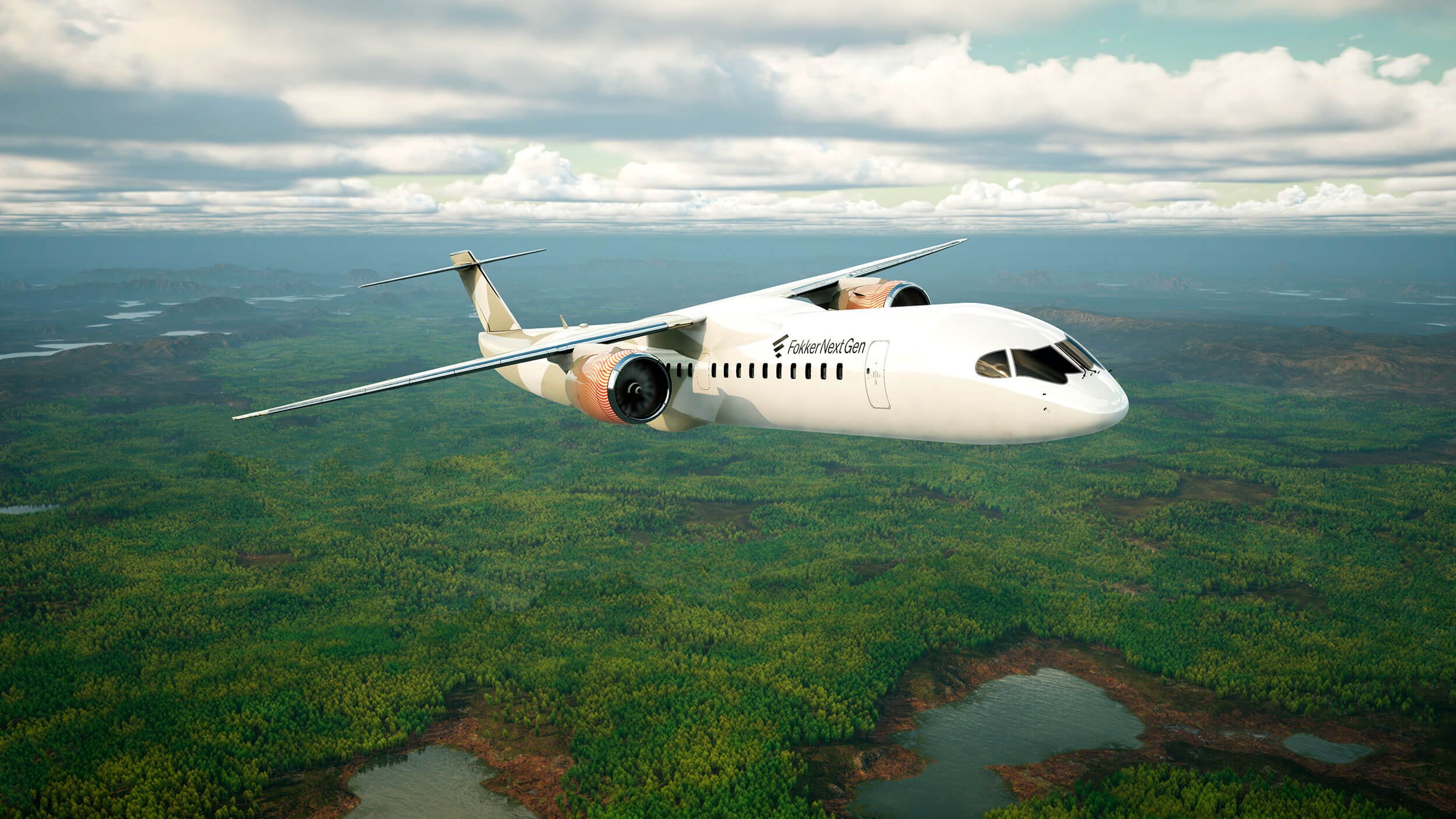
We are building a new type of aircraft from scratch
The aircraft we are designing will be truly one of a kind.
It will be able to operate on liquid hydrogen, sustainable aviation fuel (SAF) and kerosene. This will make it more versatile and adaptable. The design will be eco-friendly, with a focus on reduced emissions, reduced noise pollution and increased efficiency as well as sustainable manufacturing, maintenance and recycling at end of life.
Beyond state-of-the art liquid hydrogen storage and distribution system, cutting-edge liquid hydrogen combustion engines and other technological advancements will set the aircraft apart in the industry.
Advanced technology
Next generations should be able to fly around the world and care for the earth at the same time. We believe that this is only possible by choosing hydrogen as the most sustainable alternative to kerosene or sustainable aviation fuel (SAF). By using hydrogen, no CO2 is emitted.
Eco-friendly
These panels provide passengers with customizable views and/or entertainment options, offering a unique and personalized in-flight experience. The panels provide better control of cabin lighting, which can improve passenger comfort and help reduce jet lag. Airlines can offer passengers a customized unique and futuristic travel experience, setting the airline apart from competitors.
Interior with flexible display panels
Our mission milestones
2023
Start of year
Designing an installation for liquid hydrogen as well as the completely new type of aircraft that is our end goal.
Conceptual design phase
End of year
Conceptual Design of the clean sheet aircraft with special focus on the storage and distribution system of liquid hydrogen.
Conceptual design modifications
2024
Start of year
Configuration
Configuration studies for future new hydrogen aircraft, including cooperation with engine makers
End of year
The design study on aircraft integration level for turbofan engines running on liquid hydrogen is an essential component of the groundbreaking CAVENDISH project led by Rolls-Royce in the EU funded Clean Aviation program.
Project HOT (Hydrogen Optimisation & testing) unconditional phase complete. The conceptual design of the hydrogen storage and distribution system is finalized. Developed as part of the HOT project, this system will play a crucial role in the new aircraft's hydrogen infrastructure. The project is co-funded by the Dutch National Growth Fund and the European Union (NextGenerationEU)
Conceptual design modifications
2026
End of year
Selections & Preliminary Design Hydrogen System
Selection of preferred hydrogen aircraft and engine.
The preliminary design of the hydrogen storage and distribution system is completed, marking a significant step toward implementation. This phase, conducted within the HOT project, benefits from co-funding by the Dutch National Growth Fund and the European Union (NextGenerationEU).
2027
Start of year
Conceptual design & Iron Bird
Conceptual design new hydrogen aircraft complete (preliminary design review).
The Iron Bird, a ground test platform for the hydrogen storage and distribution system, is completed and commissioned. Extensive ground testing will take place alongside advanced simulations, leveraging state-of-the-art modeling tools to validate the system's design and operational methodology. This milestone is achieved as part of the HOT project, co-funded by the Dutch National Growth Fund and the European Union (NextGenerationEU).
2028
Start of year
HOT Project results
The hydrogen storage and distribution system has been successfully ground-tested and optimized, demonstrating its readiness for future flight test demonstrations. This marks the conclusion of the HOT project, which has advanced hydrogen aviation technology through extensive research, testing, and validation efforts.
Design adaptions to the aircraft, resulting from tests.
2030
Start of year
Detail design complete
Detail design and installation of new hydrogen aircraft complete (critical design review).
Start of production of parts for new hydrogen aircraft.
2032
Mid-year
Assembly
Start assembly of new hydrogen aircraft prototype.
2033
Mid-year
Airborne
First flight new hydrogen aircraft prototype.



